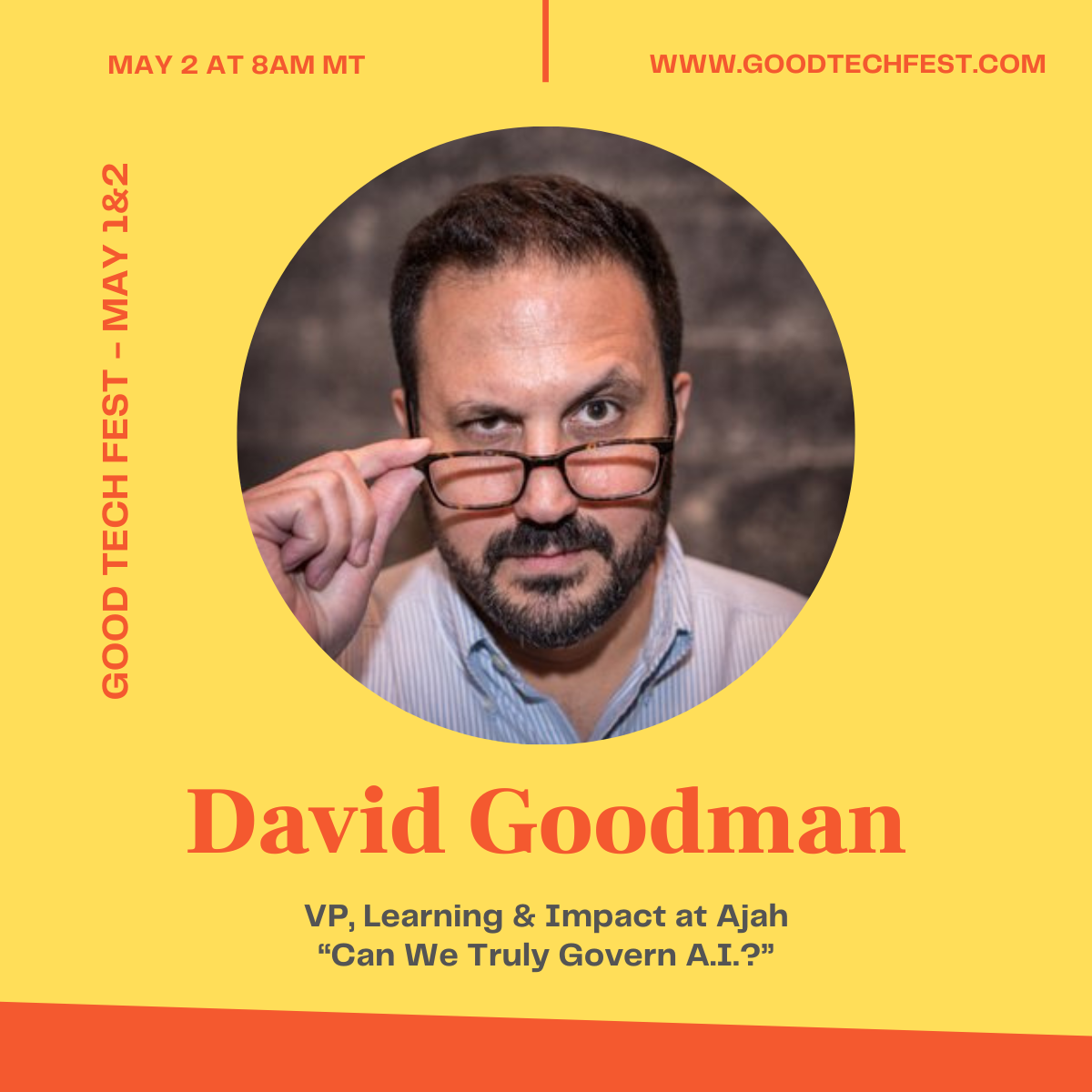Governance & Collaboration Track

The Future of the Social Sector: Profit and Privatization vs. Openness and Equity
In a sector historically hampered by fragmentation and underinvestment, we stand at an inflection point with increased federal attention and funding flowing into health equity. With current incentive models, we’re seeing massive privatization of the data, the networks and pathways to services in the Social Determinants of Health (SDOH) sector. This reality creates cycles of disempowerment for communities and profit hoarding for the private sector, while leaving the root causes of social needs to manifest. We’re proposing a radical vision for an open, public infrastructure to support equitable outcomes in the Social Determinants of Health sector, including a transformative approach that integrates all stakeholders in the journey towards health equity.

A public-private collaboration to improve the quality of data and the value of data-driven decision-making in the prehospital healthcare setting
Healthcare services struggle through multiple constraints, like providing the best quality of care for everyone at an affordable cost. In the prehospital emergency setting, this is intensified by the need to bring these elements together in a timely fashion.
In this session, the representants of two organizations, Fundación Trauma (an NGO that works towards improving trauma care) and Data Impacta (an organization that develops data-driven solutions) will show their experience regarding the implementation of a dashboard for the prehospital emergency system of the province of Mendoza, Argentina.
The model consists of the integration of administrative data (e.g., data and time of call reception and ambulance departure) and clinical data (e.g., vital signs and procedures) from different sources (emergency service, official agencies) with different types (spreadsheets, databases) using metrics and maps deployed in a freely available BI application.

Tech Equity Requires Governance Representation
The California Community Colleges enrolls approximately 2-million students that represent one of the most diverse populations in terms of demography, educational aspiration, geography, economic prosperity and opportunity. In this context, technology equity often focuses on students, namely their ethnic, racial and/or gender identities. Yet, less visible but likely as or more important in their experience with technology is governance. In this session, the presenter will describe the decentralized system of 116 colleges and how technology governance has been forced to evolve over time as part of the commitment to ensure postsecondary education and training are accessible to everyone in the state. The discussion will include attention to the value of intentional assessments of technology governance and describe how it is foundational to facilitate an equitable approach to technology access in what is made available, how, to whom, within which contexts, as decided by key stakeholders. Attendees will have an opportunity to engage in a hearty discusson about governance and what that means in the context of "good tech."

Sharing Power in Data Practices
In the world of data for social impact, it is common to ask individuals with lived experience about an issue for their thoughts and opinions. What is much less common, however, is meaningfully sharing power with the community, allowing individuals who are closest to an issue to influence important decisions about how data is gathered and shape the narrative that gets crafted from their data.
In " Sharing Power in Data Practices," our aim is to paint a picture of how to meaningfully engage community members at each stage of the data collection, management, exploration, and reporting process. We will explore creative methods for engaging individuals in designing data collection objectives and activities, without requiring them to have preexisting data knowledge. The seminar will also cover collaborative techniques for analyzing and interpreting data, allowing a diverse group to influence the narrative that coalesces around their data. By bringing in real-world examples and case studies, participants will see how these practices lead to better data quality and a more empowered and engaged community.

Building Data Capacity in the Canadian Non-Profit Sector
Over the past three years, Blueprint has led the Practitioner Data Initiative (PDI), dedicated to enhancing data capabilities within the nonprofit sector. Through the PDI, 16 nonprofits across Canada have benefited from Blueprint's technology agnostic guidance, overcoming the complexities of data utilization. Join us for a dynamic conversation with Blueprint’s team, Roua Aljied and Samridhi Kundra. We will also be joined by independent consultant Ben Berres and Elle Gemma Gruver from DARO, who served as consultants on the Practitioner Data Initiative. In this discussion, we will share insights and strategies learned from supporting organizations to leverage data more effectively within the Canadian context. We will explore topics such as data governance, leadership, and the significant role community practice plays in nonprofit sectors.

AI for Changemakers - Empowering 100 nonprofit scale-ups with AI strategy and tools
Our vision at Tech To The Rescue is to make pro-bono work a new tech industry standard. We are getting there one impactful match at a time.
First of all, we want to inspire more intense tech & nonprofit collaboration - and we build on our experience from matching over 600 tech companies with verified non-profits for pro-bono projects!
Then, with "AI for Changemakers" - we want to launch an important invitation to tech companies (both SMEs and big tech): to engage in social impact projects led by 100 hand-picked nonprofits working in 5 impact areas from healthcare, climate change, disaster response, education to economic opportunity creation.

Increasing Accessibility to Public Services via Open Source Software
Did you know that approximately $80 Billion of funding for essential programs and services goes unused each year in the United States? Join us for a dynamic panel discussion that explores how open source software can bridge accessibility gaps for public benefits and services. We will discuss how technical solutions enable residents by creating equitable access to opportunities in their communities. We will explore this topic through the lens of two projects:
CiviForm, an open source software developed by The City of Seattle with support from a full-time team of pro bono Google.org Fellows in 2020. Through CiviForm, residents and community organizations can find and apply to multiple public service programs in one place, resulting in reduced application times by up to 80% and as much as $23K in savings for qualified families. Building on that success, additional governments have chosen to use CiviForm including Bloomington, Indiana; Charlotte, North Carolina; and the State of Arkansas...with more joining the software collaborative in 2024!
Bloom Housing, a user-friendly platform built by Exygy that simplifies the search and application process for affordable housing for residents, property managers, and housing staff. Bloom has seen over 1 million unique users and has had 2000+ housing units listed since it launched in 2017. With support from a full-time team of pro bono Google.org Fellows, Bloom has been implemented in the City of Detroit and across the San Francisco Bay Area.
At this panel, you’ll hear from representatives who have firsthand experience implementing these open source software tools to improve benefits and services accessibility. Attendees will gain practical insights into how they can leverage similar technologies in their respective communities and have an opportunity to ask questions to continue the discussion.

People Powered Technology
How can we create communication technology that empowers citizens? How can communication technology for citizens be accessible, transparent, and supportive to all kinds of stakeholders in the community? How can the technology replace ineffective and costly administrative staff while simultaneously improving civic engagement?

African Blockchain Ecosystem: Honey or Vinegar Relationship Between the Government and Blockchain Companies?
This session will explore the current relationship between different African governments and Blockchain Companies, especially cryptocurrency companies.

Can We Truly Govern A.I.?
A.I. is all the rage and organizations are racing to jump on the A.I. train, some more prepared and equipped than others. But given much of the uncertainty and limitations of A.I., what responsibility do we have as a sector to make sure that the use of A.I. and its results are appropriate and meaningful and that those organizations that may not have the requisite capacities are informed and protected? Join Ajah's David Goodman as he talks to Project Evident's Kelly Fitzsimmons and BCT Partner's Peter York - two leading A.I. experts - about A.I. governance, what we can do, what we should do, and where to start.